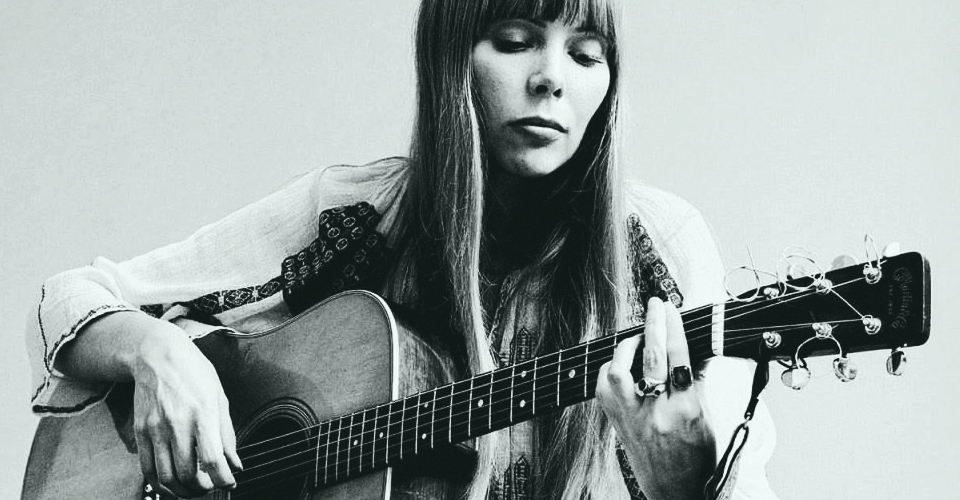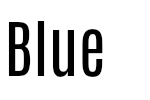

   
    


Few artists have achieved such wide-ranging impact as Canadian-born folk icon Joni Mitchell. Over the course of four decades, she's released nineteen studio albums, two live records and numerous compilations. Prior to her own recording career, Mitchell's compositions were interpreted by Judy Collins, Tom Rush and Buffy Sainte-Marie, among others. After her debut album was released in 1968, her output was prolific, with an album issued nearly every year of the first decade of her career. Mitchell's songwriting developed rapidly, and her fourth album, Blue, is widely regarded as a classic.
She rejected fame following 1974's Court and Spark, her most commercially successful release that resulted in several hit singles, and increasingly delved into jazz throughout the late '70s, eventually collaborating with Charles Mingus on what would be his final project before succumbing to ALS in 1979. Mitchell spent the '80s dabbling in pop rock, incorporating into her work synthesizers and lyrics laden with social commentary. The '90s saw a resurgence in recognition for Mitchell, with Turbulent Indigo winning a pair of Grammy Awards in 1995. She spent the first decade of the new century reviving old work; reinterpreting jazz standards with Both Sides Now as well as her own songs on the two disc Travelogue. Mitchell exited the industry in 2007 with Shine, released through Starbucks' Hear Music label.
Today, she is most remembered for her folk pop singles (if you only know one of her songs, it's probably "Big Yellow Taxi"), but her influence is inescapable. From Prince to Taylor Swift, Björk to Janet Jackson, the music industry is full of artists who have called her an inspiration. Want to know what made them devotees? The following five albums, listed in order of original release, are a great place to get started.

Where previous Joni Mitchell recordings seemed in search of the most poetic way to assemble her words, Blue takes on a more straightforward approach, creating a freewheeling stream of consciousness purging, where perfection or adhering to structure is far less important than just getting the thoughts out. Mitchell's melodically meandering fourth release opens with innocent naiveté on "All I Want" (All I really, really want our love to do is to bring out the best in me and in you) before dissolving into the depths of heartache by album's end. And though the inclusion of Appalachian dulcimer is an effective and welcome addition to the musical palette, it's Mitchell's voice that is the key instrument here, inhabiting and emulating her emotions in a way she had never even hinted at before. Notice how her voice absolutely soars once she hits the word fly on "River," or how the mournful final note of the title track sounds like the musical equivalent of a mid-cry wail. Still, for all the credit Blue receives for being a significant break-up record, it's "Little Green," Mitchell's chronicle of giving her daughter up for adoption, that is the most gut-wrenching of all. Achingly understated, it's all somber resignation before concluding with one progressive, defiant admittance: "You're sad and you're sorry but you're not ashamed." For a record Mitchell indicates was recorded during a period where she felt defenseless, that's powerful.

Recognition is a curious thing. Released a year after Blue, a record that is often considered Joni Mitchell's most seminal work, and a year before Court and Spark, the most commercially successful album of her career and the only release in her discography to go double platinum, For the Roses' acclaim seems strangely subdued in comparison to the records it's wedged between. Maybe it isn't the type of album that reveals its rewards on first listen, but give it time. There are so many memorable touches that divulge themselves gradually - and will have you wondering how you didn't notice them instantly: Mitchell's habit of stretching the syllables of a word or raising her voice to liltingly accent a point mid-verse; how songs that once seemed relatively tuneless now sound stacked with miniature melodies. These are elastic, labyrinthine arrangements, and Mitchell finds a way to fuse the poetic lyricism of her early work with the heart-on-her-sleeve accessibility of Blue, while also occasionally drawing back vocally for extended instrumental periods. On For the Roses, Mitchell's mind is frequently focused on life inside the music industry: the troubling course fame traditionally takes, the struggle to maintain a relationship, drug addiction. "Judgement of the Moon and Stars (Ludwig's Tune)" is an inspired interpretation of Beethoven's frustrations, while "You Turn Me On, I'm a Radio" is the sarcastic result of Mitchell's label requesting a hit. (It worked, too, becoming her first single to reach the top 25 in the U.S.) For the Roses may not be the most immediate album in Mitchell's oeuvre, but it's her ultimate masterpiece.

Following Joni Mitchell's exceptional early '70s singer/songwriter work, Court and Spark presents a bit of an unexpected shift of pace. Moving on from the sorrowful seriousness that had previously presented itself in records like Blue, this jazz-inflected folk pop hybrid is home to some of the most carefree music in Mitchell's catalog. From the breezy "Free Man in Paris," that quite effectively mirrors the unburdened nature of the track's title character, to the rollicking "Raised on Robbery," there's a lot of lighthearted fun to like here. But it's not all jovial, as Mitchell also unambiguously contends with failed relationships ("Same Situation"), social anxiety ("People's Parties") and mental illness ("Trouble Child"). There's no missing Mitchell's intention though, as she follows a track about a suicide attempt with "Twisted," a goofy 1950s jazz song that wraps the album up with a wink.

Coming off the commercial success of Court and Spark, Joni Mitchell responds to her newfound fame with a resounding "no thank you." The Hissing of Summer Lawns find her outright rejecting melody and delving deeper into jazz, with arrangements that slink and lyrics that rarely paint a pretty picture. Throughout these ten songs, we meet misogynists, cannibals, addicts, pimps, prostitutes, unhappy housewives and money-fixated businessmen, all before Hissing closes with an anti-hymn. What pops out of the speakers on first listen is "The Jungle Line." Sampling a field recording from the Drummers of Burundi, a centuries-old percussion ensemble from central Africa, Mitchell builds around the beats a fitting ambience to accompany the jungle landscapes of French Post-Impressionist painter Henri Rousseau, for whom the song pays tribute. The downside to a piece like "The Jungle Line" is that initially, everything surrounding it sounds restrained in comparison. But maybe that's not entirely accidental. A recurring theme here is self-imposed suppression, and Mitchell spends much of her time fluctuating between sounding disinterested, displeased or altogether disgusted with the status quo and those that buckle to fit its form. A brazenly feminist record, Hissing is littered with people diminishing themselves down from a person to a concept, wholly preoccupied with presentation: dressed in stolen clothes, mimicking movies, willful prisoners by their own design. Mitchell juxtaposes these superficial facades with the cracks underneath: the runs in the nylons beneath a fancy dress, a priest wearing a pornographic watch, a roomful of Chippendale with nobody to sit in it. And while the characters she condemns are caught up in treating identity as classification, Mitchell herself seems weary of definition: "Nothing is capsulized in me on either side of town. The streets were never really mine. Not mine, these glamour gowns." Judging by this material, Mitchell possesses a palpable anxiety over being boxed in, and she certainly succeeds in making sure that pigeonholing her isn't an option.

With a title inspired by the Arabic word for "journey," Joni Mitchell withdraws from the in-your-face boundary pushing of the previous year's Hissing of Summer Lawns to quieter ground on Hejira, an unceasingly subtle work that demands attentiveness to be appreciated to its fullest. Much of Hejira was written while on a cross-country roadtrip from Maine to California, and knowing that fact aids considerably in understanding the album's aimless nature. Where Hissing viewed domesticity with an outright animosity, Mitchell's conflict with love becomes even more apparent here, and she spends most of Hejira wrestling with her idealization of independence and simultaneous need for attachment. "Song for Sharon" encapsulates the eternal struggle between Mitchell's heart and mind, tracking her experiences from youthful fantasy to adult disillusionment in its eight and a half minutes. Though her stab at blues on "Furry Sings the Blues" comes off as downright disrespectful, and thoroughly disgusted country blues guitarist and song inspiration Furry Lewis in the process, she more successfully tackles jazz fusion, particularly on album highlight and opener "Coyote," and makes her case for late entry into the Great American Songbook with "Blue Hotel Room," which sounds like a George Gershwin jazz standard with a hint of Cole Porter humor. Though it's surprising to hear Mitchell so musically reserved this time around, especially when trailing the audaciousness of "The Jungle Line" by just a year, Hejira peels back yet another layer, exposing a wealth of revelations underneath its deliberately detached exterior.
For more Joni, stream the Orphaned Apparel Joni Mitchell playlist on Spotify:
*As an Amazon Associate I earn from qualifying purchases.
    

|






















